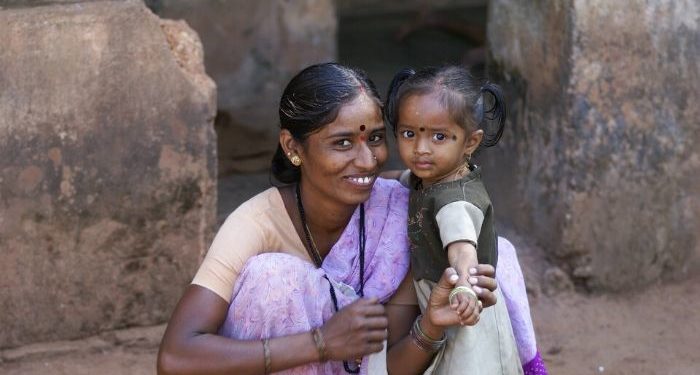5 Legal Aspects To Know If You Are A Working Mother Or A Mother-To-Be

Written by: Suruchi Kumar
April 11 is National Safe Motherhood Day. On this occasion, we would like to make all mothers and mothers-to-be out there aware of their rights under Indian laws.
1. Maternity Leave
Under the Maternity Benefits Act, 1961 (“MB Act“), a woman employee is entitled to maternity leave up to 26 weeks of paid leave – out of which eight weeks can be taken prior to the delivery date and the remaining period of leave after delivery. If the woman employee suffers an illness or miscarriage, then she can get one month of additional paid leave. The law protects these new mothers from dismissal during the period of maternity leave. Once the child is born and the woman employee has returned to work, she is also allowed to take two nursing breaks in a day.
Read: Maternity Benefits For Indian Women: Changes In The Maternity Benefit Law From 1961 To 2017
2. Crèche
A crèche facility was already mandatory in any factory having more than 30 women employees but with the amendment to MB Act in 2017, a requirement to set up crèche became mandatory in companies having more than 50 employees.
So far, only Maharashtra, Gujarat, Kerala and Karnataka have incorporated rules providing clarity on the finer details of setting up of this crèche facility i.e. where, how and what.
To fill this void, in 2018 the Ministry of Child and Women Development formulated the ‘National Minimum Guidelines for Setting-up and Running Creche under the Maternity Benefit Act 2017’ (found here). These guidelines provide certain norms and standards which could be used as a reference point to ascertain a well-maintained crèche facility set up by the company or even on a stand-alone basis by any organization in the business of child-care.
Read: Impact Of Amendments In Maternity Benefits Act On Women Leadership In India Inc.
3. Adoption
The Juvenile Justice (Care and Protection of Children) Act, 2015 read along with the Guidelines Governing Adoption of Children, 2015 (found here) give guidelines on adoption of orphaned, abandoned or surrendered children. A single woman can adopt a child of any gender. A couple, having a minimum of two years of stable marital relationship, can also adopt a child. Minimum age difference between the child and adopting parents/parent should be not less than 25 years.
It is important to mention that a woman employee who legally adopts a child below the age of three months is entitled to maternity leave of 12 weeks from the date of handing over the child, under the MB Act.
Read: From Maternity Benefits To Paternity Benefits
4. Surrogacy
Many women today are opting for reproduction through the surrogacy method due to various reasons (health, infertility, etc.). The woman carrying the baby is called a ‘surrogate mother’ and the woman opting for this method is called a ‘commissioning mother’.
Surrogacy in India is legal and regulated under the ‘National Guidelines for Accreditation, Supervision and Regulation of ART Clinics in India, 2005’ (found here) framed by the Ministry of Health and Family Welfare. The Surrogacy Bill, 2019 is currently pending in the parliament and once enacted it will regulate ‘altruistic’ surrogacy. So far there is no law restricting commercial surrogacy, but once the Bill becomes a law, commercial surrogacy will become prohibited in India.
Just like an adopting mother, a woman employee who commissions surrogacy i.e. a commissioning mother, is entitled to maternity leave of 12 weeks from the date of handing over the child, under the MB Act.
Read: A Guide To Compliance With The Maternity Benefits (Amendment) Act, 2017
5. Abortion
Abortion is sought at times when pregnancy has occurred due to the failure of contraceptive methods. It could also be sought when continuation of a pregnancy may cause risk to the life of the mother-to-be or that there is a risk of the child being born with physical or mental abnormalities. In such cases, the Medical Termination of Pregnancy Act, 1971 allows for termination of pregnancy if a registered medical practitioner is of the opinion that continuation of pregnancy is a risk to the life of a mother or child or both.
Opinion of two medical practitioners is necessary if the pregnancy is between 12 to 20 weeks. Beyond 20 weeks, abortion is not permitted under law. However, the Medical Termination of Pregnancy (Amendment) Bill, 2020 (found here), which is currently pending in the parliament, proposes to increase this limit to 24 weeks. After this Bill becomes a law, a woman having health issues can get termination of pregnancy between 20 to 24 weeks after taking opinion of 2 registered medical practitioners.
A woman employee who opts for medical termination of pregnancy is entitled to paid leave of six weeks from the date of such abortion, under the MB Act. If in case the woman employee falls ill due to abortion, then she is entitled to an additional paid leave for one month, under the MB Act.
About the author: Suruchi Kumar is a Labour Law practitioner and works as a consultant with Ungender Legal Advisory.
Ungender Insights is the product of our learning from advisory work at Ungender. Our team specializes in advising workplaces on workplace diversity and inclusion. Write to us at contact@ungender.in to understand how we can partner with your organization to build a more inclusive workplace.
Read our insights about diversity, legal updates and industry knowledge on workplace inclusion at Ungender Insights. Visit our Blog.
Sign up to stay up-to-date with our free e-mail newsletter.
The above insights are a product of our learning from our advisory work at Ungender. Our Team specialises in advising workplaces on gender centric laws.
or email us at contact@ungender.in




